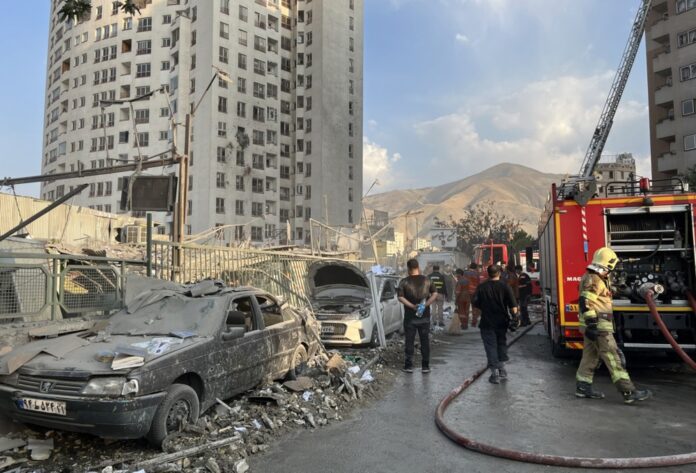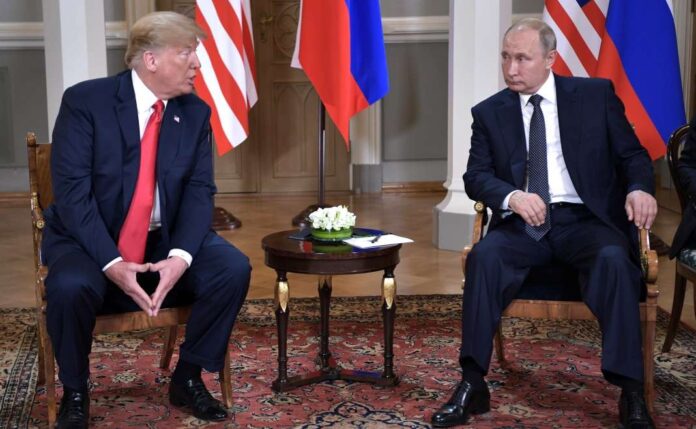Analysis of the BBC for Israeli-Iranian attacks: What are the worst possible scenarios?

So far, fighting between Israel and Iran looks limited to both countries. There are widespread calls for restraint in the United Nations and elsewhere. But what if these calls remain unknown? What if fighting escalates and expands? Here are some possible scenarios for the worst case – analyzes The BBC.
If America is drawn into the conflict
Despite all the denials by the United States, Iran clearly believes that US forces have approved them and at least tacitly supported Israeli attacks.
Iran could attack US targets in the Middle East – such as special forces camps in Iraq, military bases in the Gulf and diplomatic missions in the region. Iran’s proxy strengths-Hamas and Hezbollah-may be significantly weakened, but its supporting militias in Iraq remain armed and untouched.
The United States fears such attacks are possible and withdrawed part of its staff. In its public messages, the United States has clearly warned Iran of the consequences of any attack on US targets.
What would happen if, for example, an American citizen was killed in Tel Aviv or elsewhere? Donald Trump can be forced to act. Israeli Prime Minister Benjamin Netanyahu has long been accused of wanting to draw the United States to help defeat Iran.
Military analysts say only the United States has bombers and bombs to destroy bunkers that can penetrate the deepest Iranian nuclear facilities, especially the one in Fordow.
Trump has promised his magazine supporters that the so -called « eternal wars » in the Middle East will not begin. But equally many Republicans support both the Israeli government and its view that now is the time to demand a change of regime in Tehran.
But if America becomes an active participant in the fighting, it would be a huge escalation with long, potentially devastating consequences.
If the Gulf countries are drawn
If Iran fails to damage Israel’s well -protected military and other targets, then it could direct its rockets to easier goals in the Gulf, especially to countries he believes they have been helping his enemies for years.
There are many energy and infrastructure purposes in the region. As a reminder, Iran was accused of attacking Saudi Arabia’s oil fields in 2019, and his proxy Juti struck targets in the UAE in 2022.
Since then, some reconciliation has come between Iran and some countries in the region.
But these countries host US air bases. Some have also discreetly helped defend Israel from Iranian missile attacks last year.
If the bay is attacked, then he could also ask for US warplanes to defend it, as well as Israel.
If Israel fails to destroy Iran’s nuclear ability
What if the Israeli attack fails? What if Iranian nuclear facilities are too deep and well protected? What if 400kg of uranium enriched to 60% – nuclear fuel which is just one step of weapons, enough for ten bombs – not destroyed?
It is thought that it may be hidden deep in secret mines. Israel may have killed some nuclear scientists, but no bomb can destroy Iran’s knowledge and expertise.
What if Israel’s attack convinced Iranian leadership that the only way to prevent further attacks is to strive for nuclear ability as soon as possible?
What if the new military leaders around the table are more impulsive and less careful than their dead predecessors?
At the very least, it could force Israel into additional attacks, potentially put the region in a constant cycle of attacks and counterattacks. Israelis have a brutal expression for this strategy; They call it « mowing the grass ».
If there is a global economic shock
The price of oil is already rising.
What if Iran tried to close the Ormus flow, further restricting oil movement?
What if – on the other side of the Arabian Peninsula – the Youti in Yemen doubled their efforts to attack ships in the Red Sea? They are the last remaining so-called Iranian proxy ally with a history of unpredictability and high risk.
Many countries around the world are already suffering from a crisis with the cost of living. The rise in oil prices would add inflation to the global economic system, which is already burdened by Trump’s tariff war.
And let’s not forget, the only person who profits from rising oil prices is President Putin from Russia, who would suddenly see billions of dollars in the Kremlin’s cash registers to finance his war against Ukraine.
If the regime falls in Iran, leaving a vacuum
What if Israel succeeds in its long -term goal of causing the collapse of the Islamic revolutionary regime in Iran?
Netanyahu argues that his primary goal is to destroy Iran’s nuclear ability. But he made it clear in his statement yesterday that his wider goal involves changing the regime.
He told « the proud people of Iran » that his attack « clears the way for you to achieve your freedom » from what he called their « evil and oppressive regime ».
The demolition of the Iranian government may appeal to some in the region, especially some Israelis. But what kind of vacuum would you leave? What unforeseen consequences would you have? What would a civil conflict look like in Iran?
Many may remember what happened to Iraq and Libya when strong central government was removed.
So, much depends on how this conflict will be in the coming days.
How – and how strong – will Iran respond? And what restrictions, if they can at all, impose a United States on Israel?
The answer to these two questions will depend a lot.







